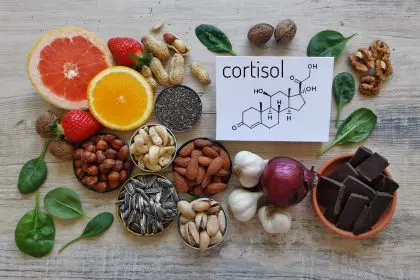Recent research from Stanford University, published in BMC Medicine, has revealed startling findings about the potential impact of vegan diets on biological aging. This study, which involved identical twins, offers unprecedented evidence on how plant-based nutrition can alter the aging process and provide numerous health benefits.
Understanding the research breakthrough
Stanford’s research is notable for its innovative design, which tracked 21 pairs of identical twins with an average age of 39. This approach is particularly compelling because identical twins share the same genetic makeup, eliminating genetic variables that often complicate studies on aging. By focusing on dietary differences, researchers were able to isolate the impact of vegan diets on biological aging with unmatched clarity.
The researchers aimed to answer a fundamental question, can diet influence biological aging, even when genetic factors remain constant? The results suggest that dietary changes, specifically adopting a vegan lifestyle, may have significant effects on aging markers, offering an exciting avenue for health interventions.
Scientific findings
The results of the study revealed significant improvements in biological markers for those on the vegan diet, providing compelling evidence that plant-based nutrition may slow certain aspects of the aging process.
Cardiovascular system enhancement was one of the most notable improvements observed in participants following the vegan diet. Researchers found improved blood pressure regulation and better arterial health among those who adhered to plant-based eating habits. Additionally, liver function optimization and hormonal balance improvement were key benefits, showing that the vegan diet could enhance bodily processes that naturally decline with age. The study also noted a reduction in inflammatory responses, which is widely associated with age-related diseases such as arthritis and heart disease. Finally, participants exhibited an increase in metabolic efficiency, which is often compromised as the body ages.
Physiological impact
Beyond the scientific markers, the study also observed measurable physiological changes in participants, further supporting the health benefits of a vegan diet. Weight loss was one of the first improvements, with participants losing an average of two kilograms over the course of the study. This weight reduction, combined with improved cellular health markers, showed that the vegan diet could not only help slow aging but also promote general health.
Enhanced systemic function was also reported, as many participants showed signs of improved organ function and better circulation. The most profound effect noted was the reduction in inflammatory responses, a crucial factor in aging. Chronic inflammation is a key driver of age-related illnesses, so its reduction could significantly enhance longevity and quality of life.
Nutritional composition
The study also highlighted the importance of the nutritional composition of the vegan diet in achieving these remarkable results. Participants consumed a diet rich in plant proteins, complex carbohydrates, and essential fatty acids, all of which play critical roles in cellular function and longevity. The diet also included a diverse range of micronutrients, such as vitamins and minerals, which are essential for maintaining bodily health as we age.
This focus on diverse, whole-food plant nutrition helps ensure that participants received a broad spectrum of nutrients, each contributing to the diet’s overall effectiveness in promoting health and slowing biological aging.
Longevity mechanisms
While the precise mechanisms behind the vegan diet’s anti-aging effects are still being explored, the research points to several possible biological pathways. One of the most promising is cellular repair enhancement, which is crucial for maintaining healthy tissue as we age. Additionally, the vegan diet was linked to a reduction in oxidative stress, which occurs when the body’s cells are damaged by free radicals, leading to aging and disease.
Another significant finding was the protection of DNA and the preservation of telomeres, the protective caps at the ends of chromosomes. As we age, telomeres shorten, and their erosion is associated with cellular aging. A diet rich in antioxidants and plant-based compounds, such as those found in the vegan diet, could help protect these telomeres and extend cellular life.
Practical implementation
For those interested in adopting a vegan diet to improve health and potentially slow biological aging, a careful, strategic approach is essential. The study suggests a gradual transition period to help the body adjust to the dietary change. Additionally, nutrient monitoring is crucial to ensure that all necessary vitamins and minerals are included in the diet. While the vegan diet offers many health benefits, supplementation consideration is important for specific nutrients, such as vitamin B12, which is commonly deficient in plant-based diets. Meal planning optimization can also help ensure that individuals are receiving all the necessary nutrients.
Health outcomes
The study revealed a wide range of health benefits from adopting a vegan diet, further supporting its potential for improving biological aging. Among the observed benefits were improved cardiovascular function, increased metabolic efficiency, and reduced inflammation. Participants also experienced better weight management, which is a critical factor in reducing the risk of age-related diseases such as diabetes and heart disease.
Long-term implications
The implications of this research are vast, suggesting that vegan diets could have broader benefits for public health. If adopted on a large scale, plant-based nutrition could reduce healthcare costs, improve quality of life, and lower the incidence of chronic diseases associated with aging. Disease prevention potential is particularly noteworthy, as a diet rich in plant-based foods may help prevent or manage conditions like heart disease, diabetes, and even certain cancers.
This study offers a new perspective on aging, suggesting that dietary interventions may play a more significant role in slowing the biological process than previously thought. As more research is conducted in this area, the potential for plant-based diets to improve longevity and health outcomes becomes ever more promising.

















